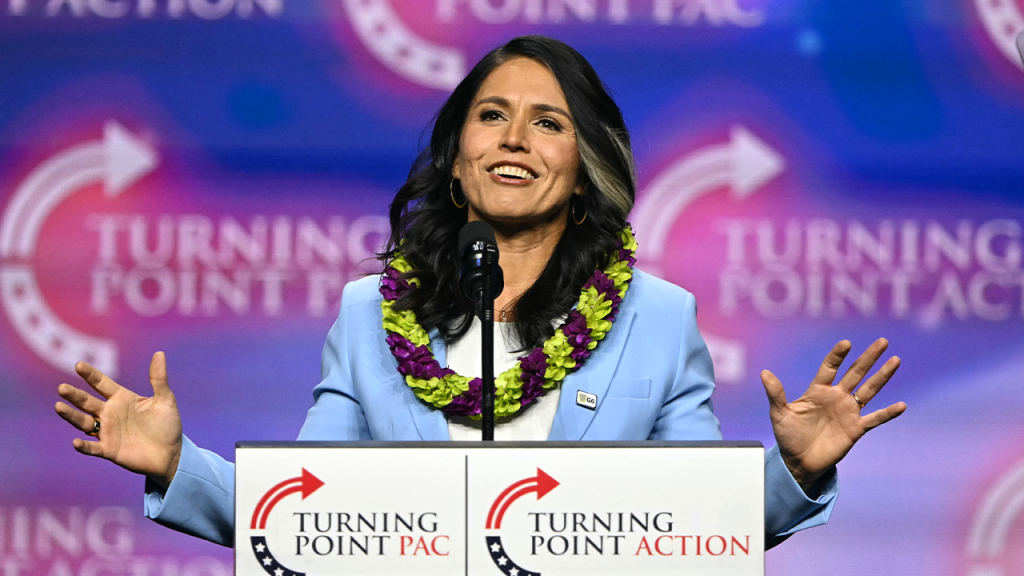President-elect Trump is in the process of choosing a nominee to lead the nation’s intelligence community, with former Hawaii House Democrat Tulsi Gabbard being considered for the position of director of national intelligence. Gabbard, who is a veteran and active duty Army reservist, served as a Democrat in the House from 2013 to 2021 before joining the Republican Party and co-chairing the Trump transition team. She has expressed her willingness to join a Trump administration and has listed priorities such as ending the influence of the military industrial complex, preventing World War III, and bringing the U.S. back from the brink of nuclear war.
Gabbard’s political views have drawn criticism from both Democrats and Republicans, with her being labeled as “pro-censorship” and “anti-freedom” by Democrats, while also criticizing Republicans for their policies. She has been vocal about her opposition to U.S. involvement in the Middle East and has criticized Trump for actions such as the killing of Iranian General Qassem Soleimani. Gabbard’s controversial meeting with Syrian dictator Bashar al-Assad during the country’s civil war, as well as being placed on a TSA watchlist for terrorists known as “Quiet Skies,” have raised questions about her judgment and decision-making.
Despite the controversy surrounding her, Gabbard has co-sponsored legislation in Congress to ban the first-time use of nuclear weapons and often speaks out against politicians who advocate for war and escalate tensions. She has not shied away from taking unconventional and bold stances on foreign policy issues. Gabbard’s potential inclusion in the Trump administration could bring a fresh perspective to the intelligence community and potentially shake up the status quo of U.S. foreign policy.
In addition to Gabbard, former Utah Republican House Rep. Chris Stewart is also being considered for the role of director of national intelligence. Stewart, who co-founded a lobbying firm with Trump’s former national security adviser Robert O’Brien, has been in “active discussions” with the transition team about the position. His experience in Congress and ties to the Trump administration could make him a strong contender for the role.
The director of national intelligence plays a crucial role in advising the president, National Security Council, and Homeland Security Council on national security matters. The nominee for this position must be confirmed by the Senate or appointed on an acting basis. Trump recently tapped his former director of national intelligence, John Ratcliffe, to lead the CIA. The decision on who will lead the intelligence community under the new administration will be closely watched as it could have significant implications for U.S. national security and foreign policy in the coming years.














